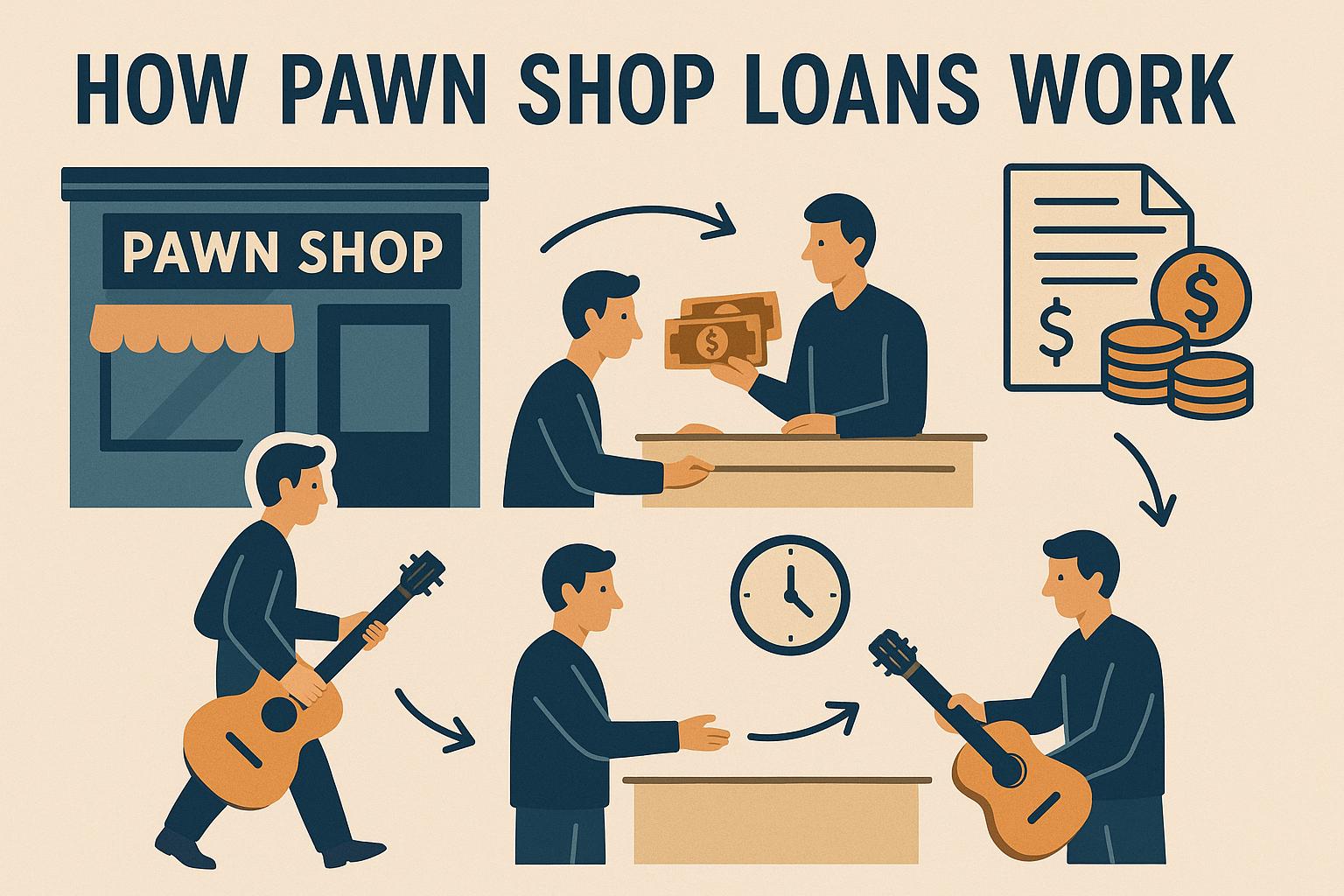
How pawn shop loans work.
Understanding Pawn Shop Loans
Pawn shop loans serve as a convenient and relatively accessible means of borrowing money, leveraging personal belongings as collateral. This method of borrowing diverges significantly from traditional loans, presenting a viable option for those who might not qualify through conventional channels, particularly individuals with less-than-perfect credit histories. Let’s delve deeper into the mechanics of these loans and what they entail, offering a comprehensive understanding of their benefits, potential drawbacks, and critical considerations.
How Pawn Shop Loans Work
When considering a pawn shop loan, prospective borrowers will need to bring an item of value they own directly into a pawn shop. This personal possession acts as collateral, providing the pawn shop with security for the loan. Items frequently used include jewelry, electronics, musical instruments, and valuable collectibles. The pawn shop staff will then appraise the item and offer a loan amount that is typically a percentage of its estimated worth. This evaluation process is crucial, as it determines the feasibility of a pawn shop loan for the borrower.
The Evaluation Process
During the evaluation process, the pawn shop assesses the value of the proposed collateral based on several criteria:
1. Condition: The item must be in good, if not excellent, condition, as this affects its market value directly. Wear and tear can significantly diminish the loan amount offered.
2. Market Demand: If an item is currently in high demand, it is more valuable as collateral. Pawn shops are more likely to offer higher loan amounts for items that they can easily sell if the loan is not repaid.
3. Authenticity and Brand: Items from well-known brands or those with verified authenticity often command higher loan values. Branded and genuine items are perceived as more desirable and hold their value better.
Once the assessment is complete, and you agree to the proposed amount, you receive the loan and leave your item in the safe custody of the shop.
Loan Terms and Repayment
The borrowed amount under a pawn shop loan is usually for the short term, with repayment terms differing from one pawn shop to another. Typically, the borrower might have anywhere from 30 days to a few months to settle the loan. These terms also encompass interest payments and possibly additional fees. It’s imperative to have a full understanding of these terms upfront, as pawn shop loans often come with interest rates that are higher than those associated with traditional lending methods.
Key Terms to Review:
Interest Rates: High and reflective of the risk pawn shops bear, these interest charges add up quickly, making it essential to factor in the total repayment cost.
Fees: Beyond interest, some pawn shops might levy fees for storage and insurance of the item to secure it against potential damage or loss.
Renewal Options: If repayment by the due date proves challenging, some pawn shops may offer the option to renew the loan. Renewal extends the loan period but increases the interest paid. It’s crucial to weigh these costs against the convenience of extended time.
What Happens if You Don’t Repay?
In the event of non-repayment by the specified due date, without a successfully arranged renewal, the pawn shop retains and eventually sells the item to recover the loan amount. The borrower, however, is not obligated beyond losing the collateral – they owe nothing more than what the item covers. This aspect represents the non-recourse nature of pawn shop loans, which can be both beneficial and limiting, depending on one’s perspective.
Advantages of Pawn Shop Loans
No Credit Check: Unlike most traditional loans, pawn shop loans are not contingent on credit scores. Instead, they rely purely on the item’s value. This offers a lifeline for individuals who have poor credit or limited borrowing history.
Quick Access to Cash: The process for obtaining a pawn shop loan can be rapid, often resulting in cash disbursement on the same day, making it an excellent option for those in urgent need of funds.
Non-Recourse: If the borrower defaults, they are simply giving up their item. There is no remaining debt or obligation, which can be a relief for borrowers already under financial strain.
Considerations and Risks
While pawn shop loans indeed offer immediate financial relief with minimal requirements, they also come bundled with notable risks. High-interest rates can make the debt difficult to repay, particularly if the borrower opts for renewal and extension. Additionally, the risk of permanently losing valuable or sentimental items is significant, should repayment be infeasible.
Therefore, potential borrowers should carefully consider these aspects and potentially consult with financial advisors or explore other funding sources if possible. Alternatives such as seeking loans from credit unions, personal loans from banks, or borrowing from friends and family might present more feasible options, with lower associated costs.
For those interested in broader financial education or seeking alternatives in loan options, exploring comprehensive resources can provide valuable insights into managing personal finances effectively. As such, remaining informed and weighing all available options meticulously can furnish borrowers with the necessary strategies to navigate financial challenges efficiently.
